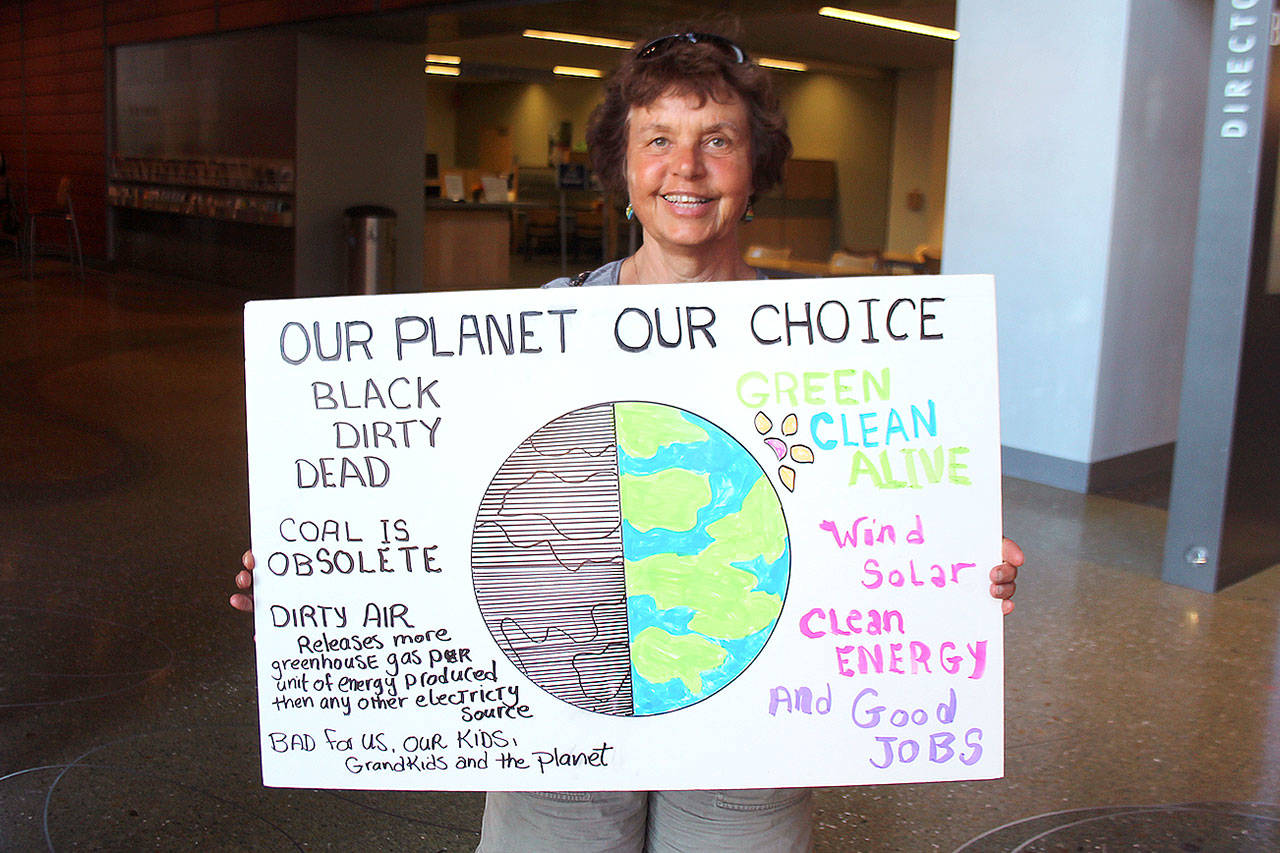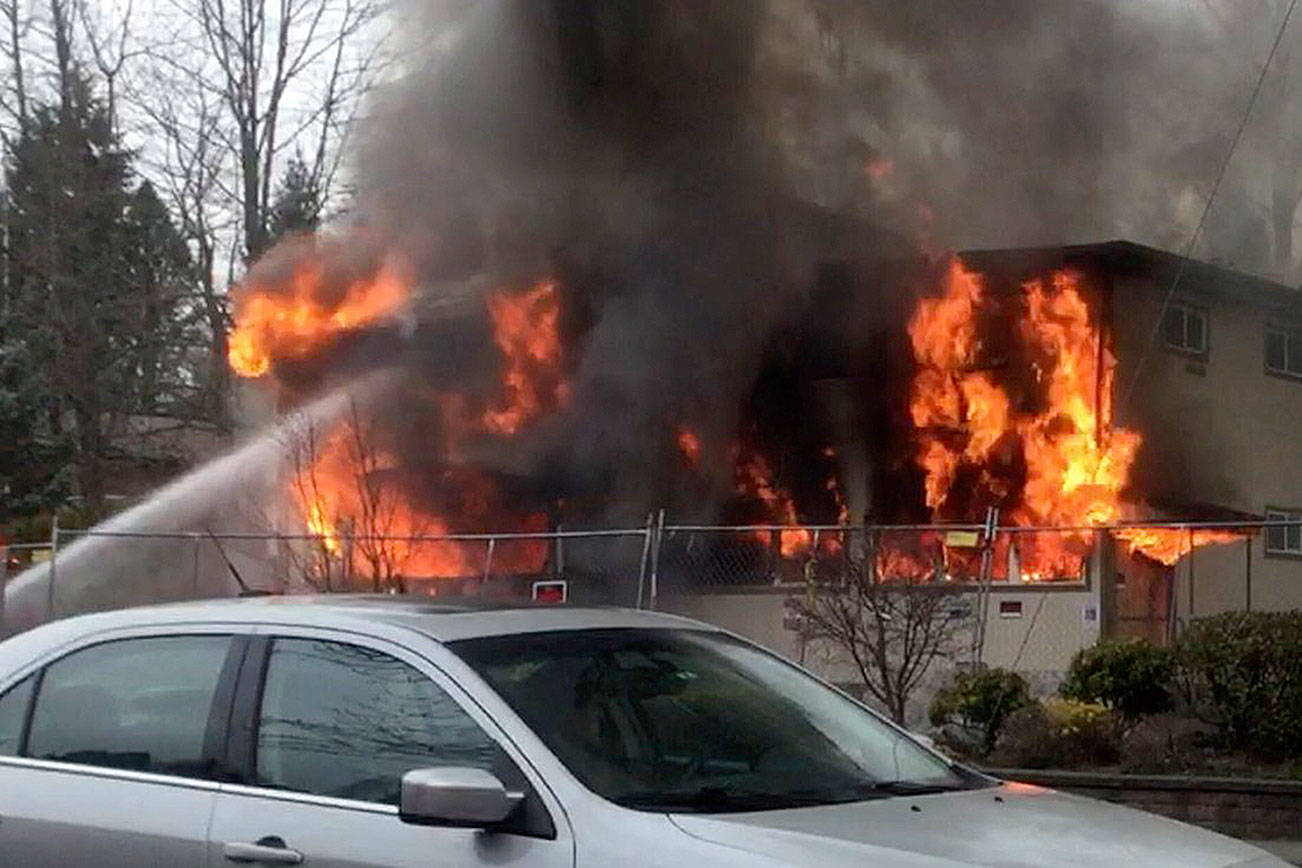Several state environmental groups and residents across the county packed Bellevue City Hall’s council chambers during a public hearing with the Washington State Utilities and Transportation Commissioners on Monday.
Their mission? To tell the commission to put Puget Sound Energy on a debt schedule that would close a coal plant in Montana by 2025.
Back in January, Bellevue-based Puget Sound Energy proposed rate adjustments for their customers—a 4 percent increase for electric rates and a 3.2 percent decrease for natural gas rates. In total, the change would reduce natural gas rates by $22 million a year while raising electricity rates by $87 million. Puget Sound Energy officials said that, among other things, the money would be used to offset the increased costs of producing electricity and would pay the expenses of retiring the coal plant. Monday’s public hearing was the first of two on the rate case before the commission is expected to make a decision this December.
But the most contentious issue wasn’t the rate change request. It was regarding the timeline for the closure of the coal plant in Colstrip, Montana. While the energy company is in the process of shutting down half of the coal plant by 2022, environmental stewards argue the rest of the plant should be on its way out by 2025 instead of the proposed 2035 time frame.
“I think folks are looking out at the national political scene and are seeing that if we’re going to make any progress on climate, it’s going to have to come from the state level and the single most important thing we can do in this state to act on climate is to shut down Colstrip,” Jessica Koski, the Puget Sound organizer of Beyond Coal’s Sierra Club, said. “It’s the lowest hanging fruit, it’s a big deal.”
In 2015, the coal plant in Colstrip was the third largest climate polluter in the United States, Koski added. It’s one of many Beyond Coal is working to retire. The Sierra Club, based in Seattle, is part of Beyond Coal and leads the effort to shutdown the Colstrip coal plant.
“Coal is the expensive, dirty, dangerous fuel,” Koski said. “So, when you actually take into account the true cost to folks’ health … it’s obvious we have better options that are available, especially in the Northwest. We have abundant wind, abundant solar, huge energy efficiency potential, so there’s really no excuse in terms of the economics to still be burning coal.”
Ryan Snell, a Kirkland resident whose granddaughter attends Sacred Heart School in Clyde Hill, said he worries about her future if climate change isn’t brought under control.
“We need to shut down all the coal plants in Colstrip,” he said. “I’m also quite aware the longer Colstrip is open, it’s going to continue to dump toxic waste into the ash ponds and, as rate payers, we’re going to have to pay for that cleanup.”
Sameer Ranade of the Washington Environmental Council of Seattle agrees the plant should shutter by 2025.
“Local jurisdictions, state governments have to act now that we know the federal government is not,” Ranade said, adding that President Donald Trump is not going to implement the Clean Power Plan, which would have reduced emissions from coal-fired power plants.
The first target date for greenhouse gas reductions in the Paris Climate Accords, which Gov. Jay Inslee has vowed to uphold, is 2025, and King County’s Strategic Climate Action Plan, which was signed by 14 King County mayors, calls on the county to phase out coal-fired electricity by 2025.
Grant Ringel, a spokesman with Puget Sound Energy, said environmental issues are also “of great concern” to the company, which has been the Pacific Northwest’s largest utility owner of renewable energy since 2006.
Ringel said Puget Sound Energy is one of six owners of the Colstrip plant, which was built in the 1970 and ’80s, and its plans to move away from coal are “aggressive,” citing the request to close half of the plant by 2022.
Puget Sound Energy also has several “green” programs, such as the Green Power Program, Solar Choice, and Green Direct. Puget Sound Energy officials claim to be one of the largest energy efficiency programs in the nation, which helps customers save money on their bills while conserving energy.
“This year, we requested the Utilities and Transportation Commission accelerate recovery of outstanding costs for units 3 and 4 (the second half of the coal plant) to allow for timely retirement of those units in the future,” Ringel said. “Part of the current rate case deals with the future costs of decommissioning and environmental remediation related to the retirement plan for Colstrip units 1 and 2 (the first half of the coal plant) by July 2022.”
Although the rate increase proposal called for a 2035 depreciation schedule for units 3 and 4, Ken Johnson with Puget Sound Energy said “further accelerating” the schedule to 2025—per advocates’ requests—could potentially increase customer rates but said it would be minimal—less than 1 percent.
“It will be determined by the commission as this rate case proceeds throughout the litigation process,” Johnson said, noting that a number of rate payers at the public hearing Monday said they would pay more to accomplish a faster shutdown.
Ringel said Puget Sound Energy found a way to pay for the eventual closure of Colstrip while minimizing the impact to customers’ bills through the rate increase.
However, the Sierra Club doesn’t see it that way. Even though half of the plant will be closed by 2022, the club said the next generation will be paying off the debt and cleanup costs for that closure through 2036. They say part of the money that Puget Sound Energy is asking for in the rate increase includes a “reasonable amount of return,” or profit, to shareholders for those depreciation costs, which, they claim, should have been wrapped up much earlier.
And they don’t want the same thing to happen with the closure of the rest of the coal plant.
In June, the Utilities and Transportation Commission staff recommended Puget Sound Energy take a different approach to paying for the decommissioning of units 1 and 2 in the coal plant.
Staff recommended the commission rule Puget Sound Energy should lower its rates for natural gas by 6.6 percent ($46 million) and decrease, not increase, electricity rates by 2.2 percent ($54 million).
To fund costs associated with decommissioning and remediation of the first half of the Colstrip site by 2022, commission staff recommended revaluing Puget Sound Energy’s share of the coal plant in Colstrip, which “would allow the company to repurpose a portion of federal treasury grants to an interest-earning account” for that purpose, according to a news release.
That recommendation, however, was made by staff and not the three commissioners who make up the Washington State Utilities and Transportation Commission.
The next public hearing for Puget Sound Energy’s rate case will be at 6 p.m. Thursday, Aug. 31 at the Washington State Utilities and Transportation Commission, 1300 S. Evergreen Park Drive SW in Olympia.
news@seattleweekly.com
A version of this story was originally published in the Bellevue Reporter.








